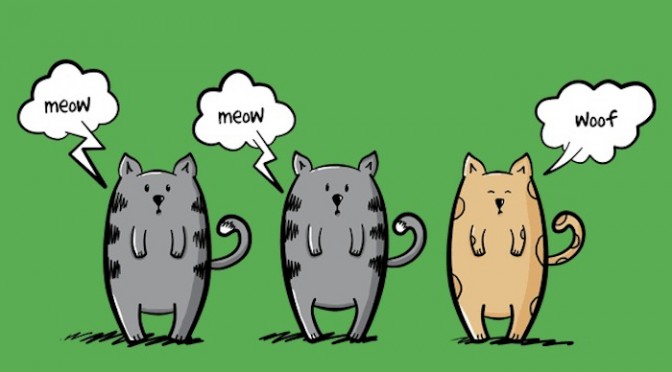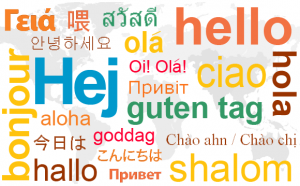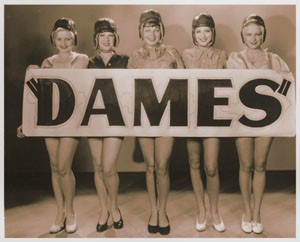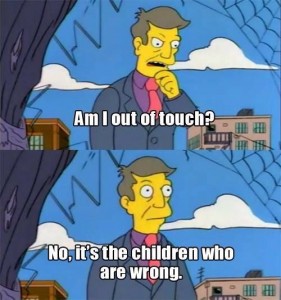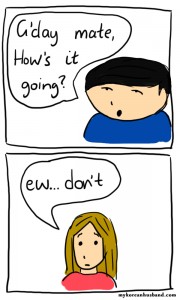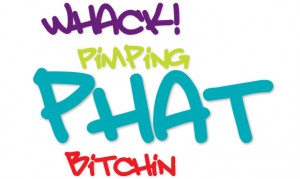Characters can be difficult to differentiate. No matter how hard you try, they’re always going to be a bit of an extension of you because you’re thinking for them. It’s not impossible, making them different people just requires changing your point of view for each of them. But sometimes, it can be a struggle to make them all feel like different people to you and your audience.
One of the most commonly passed around pieces of advice to resolve this easily is to give each of the characters a “unique voice”. The advice is a matter of making them all read as different people when they speak so that they end up feeling further differentiated from each other. This will generally let you know who is speaking and how they think without much more context, in theory.
But I’ve noticed when newer writers, and even some older ones, go about trying to make this happen they end up causing something they didn’t intend. While it’s true that many of the characters will stand out as individuals, they don’t always sound like who they were meant to be. The ways we transcribe linguistic ticks to the page are limited, what with only having three tools at our disposal to make it work. Letters, vocabulary, and punctuation can go a long way, but not nearly far enough to truly relate the human voice. Unfortunately, this means a lot of people, in trying to provide a “unique voice”, make the same mistake.
To put it bluntly: your characters sound stupid…
A Little Too “Unique”
This isn’t to say the advice in and of itself is wrong. It’s true that writing each character a little different can give them a bit of flavor. But what tends to happen with people who take advice like this to heart is that they start to try a little bit too hard. We try to make the dialogue sound as alive as we can and what we end up doing is making it exaggerated like a cartoon or caricature of the character we’ve meant to create.
A lot of this, unfortunately, makes our characters feel more out of place than we hoped for them to be. Sometimes we may make them sound mentally challenged by complete accident. Sometimes we may reinforce a stereotype we shouldn’t have. Sometimes we may just stick a guy who sounds like a pirate into the modern world.
But all of these are things that we do in trying to help make a better story and a more vibrant world. So instead of just telling you to never do it, I think it’s best to point out where you could go wrong, and why it could lead you astray. First, something to always keep in mind…
Language Is A Product Of Environment
In my novels there are a couple characters who are “ancient”. These characters are fantastical creatures living in the modern day and they speak to the protagonist on many occasions. But during the editing process of these books, one of my test readers felt that these characters should use completely different language from the rest. The note was simple and focused on just two of the ancient characters and it followed somewhat sound reasoning – if they’re not “from” this time period, they wouldn’t be speaking like us.
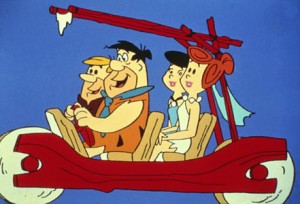
Except, that’s not really how language works. If you listen to the people you talk to on a day to day basis, you’ll notice a lot of what you say ends up being something that someone else would say too. Maybe there are a couple outliers (that drama student you know, or the writer who reads a lot), but most people are reflecting the language used around them. Even someone who is speaking a second language is almost always going to adapt to the language they speak most frequently.
This thought tends to escape people because we often see the older immigrants who still have a heavy accent despite decades. The assumption is that accents never disappear, but that’s not exactly what it is. The issue, really, is what language do you speak most and are most comfortable with using. As many foreign language students have learned over the years, immersion is the best way to improve your understanding and pronunciation of a language.
This is true for everyone. If your characters have spent substantial time speaking the same language in the same part of the world and among the same circles, they’re probably going to use a lot of the same words. They may choose different words, they may emphasize things differently, but they’ll still be doing it from the same pool of words. This includes if you happen to have an ancient vampire who has lived in the US for at least a couple generations. You may think that he should sound older, but consider your grandparents. If they spoke primarily the same language you did all the time – they probably used a lot of the same word choices you did despite the generational gap. And the words they didn’t use…?
“Unique” Vocabulary Establishes Time
One of the things about using specific words from a specific time is that you really only serve to date the world itself. When words fall out of use in a society, the people using them also tend to phase them out of their vocabulary over time. Old slang terms from the time of your grandparents eventually faded from what they’d say. In fact, even within our own generation, most of the words we would use to establish a time period have faded in relatively short order. Remember that time not long ago when everyone tried to sound like Snoop Dogg?
This is true of all generations, not just our own. Very few people who grew up in the 70s still say words like “groovy” and anyone who does continue to say it hasn’t actually left that decade. And that part there is the major point here – words establish when you’re living, not when you’ve lived. If you’re trying to establish your story within a certain time period, pick up that slang and use it for all it’s worth. Otherwise, those words are anachronisms which don’t make your character sound “unique” but out of touch.
Now if you’re trying to establish that your character’s out of touch, by all means go for it. But if your character isn’t out of touch, merely old, their language will have adapted to go with the times by becoming less colorful and sticking to the basics. This is one part shame, one part self-reflection, and one part habit of dealing with younger generations and not having those words reflected back to you all the time.
So if your character has been immersed for a considerable period of time, there’s very little chance their vernacular will be unique to them. In fact, for most people who speak multiple languages, the thing that lasts the longest is the accent. And as for that…
Use Accents Only For Special Cases
Accents are the thing that sticks with people the longest, even if they’ve relocated long ago. All of us hear our own voice and how we pronounce things as the baseline standard. And, considering we hear ourselves with reverberations that go through our skull as well as our ears, we generally don’t know what we sound like in exact precision. This is why so many of us don’t like the sounds of our own voices when recorded – we’ve never really heard ourselves accurately. As a result, it can take time for our accents to fade, sometimes a lifetime.
So to a lot of people this would seem like the way to go to give unique voices easily. Accents are identifiable and give some sense of background. You can generally identify where a person is from and thus a lot about their life story through how they speak. Southerners have a unique drawl and the heavier it is the more you know about where they came from. In fact, you can generally get a good grasp of origin, lifestyle, and life choices by how someone speaks.
The problem becomes that we really don’t have a lot of tools for making those accents stand out in text. The accent of southerners, the Irish, Aussies, and Cajuns are all very different sounds but they would all generate the same sort of text. Because each of them come about to a point where some of their letters drop off, we end up writin’ it ’bout like this an’ callin’ it day.
But all of these accents come about to losing those letters in completely different ways. Irish was heavily influenced by Gaelic and is known for more lilting and lyrical tones, gliding past certain sounds because they’re a bit too harsh. Meanwhile the Aussies and Southern Americans come about their sounds for much the same reason – descent from the dialect of English commoners long removed from England. And the Cajun? As people who also pepper a lot of French into their language, there are many instances where consonants end up sounding like vowels in their day to day conversation and that shines through the way they talk. In the end, they all read the same on paper – and the way they read is literary shorthand for “unsophisticated”.
It’s an old trick that you’ll notice often in journalism with a more biased slant. If someone being quoted by a newspaper, website, or author happens to have an accent, the way the accent is treated greatly implies what the writer thinks of that person and what they want us to think as well. This is particularly true of figures like Sarah Palin who has a strong accent but otherwise normal vocabulary. To conservative websites, the accent disappears most of the time, writing what she said in their correct forms rather than modifying them. But on a liberal website you’ll notice a bunch’a words bein’ shortened don’cha know.
It’s a purposeful tactic. Since we take misspelling of any form as a sign of someone struggling to say the words in question we usually assume they can’t or won’t do it correctly. This means we should always reserve this sort of thing for characters who have a reason to sound this way (unless we want them looked on unfavorably). As such, in my own work I’ve made point to avoid using accents unless there’s a purpose. A zombie might slur their words and struggle, but that’s because they’re a zombie. A drug dealer may do it too, but that’s because he’s a jerk.
So we must only apply these accents when it is a major part of who they are. But, even then, we have to be careful because that leads us to want to use regional slang. And…
Settle Down On Local Dialects
Regional slang is generally a bad idea in large doses. Though we all have a picture in our head of what people are supposed to sound like, we’re generally getting that from the wrong sources. This isn’t even just about location, either. Though we often hear police say words like “perp” in TV and Movies, the word itself is very rarely used by actual police officers. Meanwhile, we may all think we know what an Australian person sounds like, but we get a lot of that from this guy.
There are actually a lot of Australians who don’t like the fact we know of Steve Irwin. Though he was a nice guy, he was also a goofball and an entertainer who used a lot of slang that isn’t used from day to day. In fact, after hearing it from multiple sources, I’m pretty comfortable in saying that the Aussie relationship with “Crikey” is about the same as the Canadian relationship with “Eh” – it gets said, but only in some corners. In fact, the location where you’re most likely to hear “Eh” is Quebec – the one province that least wants to be Canadian. To put it another way, imagine if every country in the world thought Americans spoke like rednecks (…not that I don’t think that’s possible). It wouldn’t work, would it?
But when we’re trying to give our characters accents, we almost always start to slip in the slang we know. As I pointed out earlier, accents don’t translate well to the page. This brings an urge within us to try to fill in the blanks and use the vocabulary to identify which of the vague accents we’re using. But, over time, we end up using the words and phrases we know so much that the character becomes a caricature of stereotypes. In fact, combined with the accent, the caricature takes on a life of its own. And for some places, not only does that become goofy…
It becomes almost incoherent.
(I write novels. I have a twitter account. I’m told I have no interesting accent… which makes me a little sad.)


